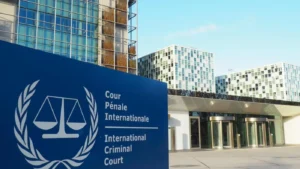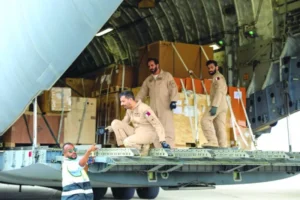Libya: Sirte Rapid City Profiling and Monitoring System: By The United Nations Human Settlements Programme (UN-Habitat) & United Nations Population Fund (UNFPA)
By: APO Group
TUNIS, Tunisia, June 28, 2018/ — In support of the stabilization and development efforts in Libya, international partners and the United Nations agencies in Libya work together to strengthen the capacity of Libyan institutions to design, develop and implement social policies with a stronger community participation based on sound and quality evidence.
The United Nations Human Settlements Programme (UN-Habitat) and the United Nations Population Fund (UNFPA) presented on Monday the key findings and recommendations of the Sirte Rapid City Profiling & Monitoring System as part of a series of planned events to share the outcomes of six Libyan city profiles covering Benghazi, Sirte, Janzour, Al Kufra, Ubari and Sebha.
Funded by the European Union under the contribution to stability and peace component, the Sirte Rapid City Profiling and Monitoring System Project is implemented jointly by UN-HABITAT and UNFPA, in collaboration with the Libyan Ministry of Planning, the Bureau of Statistics and Census, the Urban Planning agency as well as the concerned municipalities, and in coordination with relevant ministries, UN Agencies, and International and national NGOs.
The City Profiling of Sirte, a key city, linking East, West and South, provides a detailed multi-sector assessment on the urban functionality and services, taking in consideration the demographic changes resulting from forced displacement, the damages and social and economic implications induced by the conflict, and coping strategies adopted by the population.
The report shows how the intense clashes of 2011 and the occupation of the city by ISIS (May 2015 to December 2016) led to the destruction and severe damages of one third of Sirte’s buildings and public facilities. However, many of the damaged structures are occupied today with a strong determination of the population to revitalize the city.
The report showed that only 54% of the population are back to the city when the survey was conducted while the remaining inhabitants are still repairing their houses and navigating between their temporary residences and Sirte. Around one third of Sirte population lives at more than 6 km from functioning public services (health facilities, schools and public administration).
The City Profile report includes several recommendations that would guide international development and humanitarian agencies, the Libyan Government and UN agencies to tailor targeted interventions addressing the most critical short, medium and long-term needs and coordinating their actions in a city.
In her opening remarks, Ms, Bettina Muscheidt, EU Ambassador to Libya stressed: “This city profiling provides the most accurate assessment of the situation in Sirte, in brief, clear data needed to guide Libyan reconstruction efforts and the support provided by the international community. But this data also shows the present opportunity in Sirte as its citizens are ready to turn the page.“
“I commend the collective efforts from the European Union, UN-Habitat, UNFPA and the Sirte municipality to showcase the reality on the ground and produce the evidence that decision makers and donors direly need for supporting the stabilization and reconstruction of cities in Libya” stated Mrs. Maria Ribeiro, Deputy Special Representative of the Secretary General and UN Humanitarian Coordinator for Libya.
Ms. Haniya Abukhirais, representing the Municipality of Sirte added “The municipality of Sirte is eager to take best profit of the Sirte City Profile. The evidence based data contributes to an area based planning that leads to a clear vison of the reconstruction process. It is also important to design a capacity building programme for the municipality as a stipulated need in the report in order to take the lead on monitoring and updating the City profile spatial data base.
Dr. Erfan Ali, Senior Human Settlements Officer of the UN-Habitat Regional Office for Arab States also noted “We are keen to ensure the sustainability of the profiling exercise through RCPMS Libya Webportal, a key product of the project in Libya. It presents damage assessments and thematic overviews of Sirte, based on satellite imagery analysis, ground damage verification, key informant interviews and information gathered from various actors. The platform offers a live GeoPortal which allows users to overlay numerous layers of analysis in order to assess urban and demographic complexities and plan area-based responses”.
“This innovative tool is essential to strategically support municipalities in designing policies and building resilient social systems, so women can deliver safely, youth can have their potential fulfilled and the overall population can retrieve its social and economic wealth.” Ms. Berangere Boell-Yousfi, UNFPA Libya Head of Office said.





